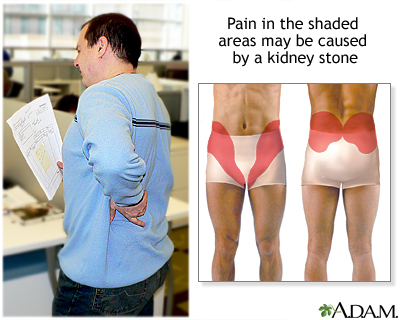 Efforts aimed at lowering homocysteine levels in order to prevent the progression of CKD and cardiovascular disease takes another major hit in the April 28 issue of JAMA. High dose B-vitamin therapy has been shown to lower the plasma concentration of homocysteine. Several observational studies have shown an association between high plasma homocytseine levels and the risk of developing diabetic nephropathy, retinopathy and vascular disease including MI and stroke. Some have even identified lowering homocysteine levels as a modifiable risk factor in cardiovascular disease. However, this is the 7th study published showing high dose B-vitamin therapy was either no better or worse than standard dose vitamins. Two of these prior studies are briefly summarized below.
Efforts aimed at lowering homocysteine levels in order to prevent the progression of CKD and cardiovascular disease takes another major hit in the April 28 issue of JAMA. High dose B-vitamin therapy has been shown to lower the plasma concentration of homocysteine. Several observational studies have shown an association between high plasma homocytseine levels and the risk of developing diabetic nephropathy, retinopathy and vascular disease including MI and stroke. Some have even identified lowering homocysteine levels as a modifiable risk factor in cardiovascular disease. However, this is the 7th study published showing high dose B-vitamin therapy was either no better or worse than standard dose vitamins. Two of these prior studies are briefly summarized below.- In 2006, NEJM published the results of the HOPE-2 study. This study followed 5522 patients >55 who had vascular disease or diabetes to high dose (2.5mg folic acid, 50mg B6 and 1mg of B12) or placebo for 5 years. RESULT: No difference was seen between both groups in regards to risk of death from a cardiovascular cause or MI.
- At ASN last year the results of the FAVORIT trial were released. This is the largest randomized study of kidney transplant recipients ever performed. This study followed 4110 Kidney transplant recipients with hyperhomocysteinemia at 30 clinical sites across North America and Brazil. They were randomized to either the high-dose (5 mg folic acid, 50 mg B6 and 1 mg B12) or standard-dose (0 mg folic acid, 1.4 mg B6 and 2 mcg B12) multivitamins. The study was halted after 3.5 of the planned 5 years of followup. RESULT: No difference in cardiovascular outcomes (the study’s primary end point), progression to dialysis-dependent ESRD and all-cause mortality in both groups.
This current study (Diabetic Intervention with Vitamins to Improve Nephropathy DIVINe) of high-dose B-vitamin therapy takes aim at the progression of diabetic nephropathy. A condition that is often relentless in its progression to ESRD.
238 patients at 5 academic medical centers in Canada with DM1 or 2 and a clinical diagnosis of diabetic nephropathy were randomly assigned to either high-dose B-vitamin (2.5 mg folic acid, 25mg B6 and 1mg B12) or matching placebo and followed for an average of 39.1 months.
The primary outcome was change in radionuclide glomerular filtration rate between baseline and 36 months. Other outcomes included dialysis and a composite of heart attack, stroke, revascularization and all-cause death.
Baseline characteristics
- Average age 60
- 75% men
- 83% white
- Average BP 150/80
- Creatinine was 1.6 in placebo and 1.4 in B-vitamin group
- Radionuclide GFR- 51.7 in placebo and 57.6 in B-vitamin group
- RAAS blockade- 90% in placebo and 97.5% in B-vitamin group
Results
- Radionuclide GFR decreased by a mean of 16.5 in the B-vitamin group compared with 10.7 in the placebo group (P=0.02).
- No difference in requirement of dialysis.
- The composite of MI, stroke, revascularization, all-cause mortality was twice as common in the B-vitamin group compared to controls (24 vs 13)
- Plasma total homocysteine decreased by a mean of 2.2 micromol/L in the B-vitamin group compared with a mean increase of 2.6 micromol/L in the placebo group.
So, is the era of lowering homocysteine to prevent renal and cardiovascular outcomes over? This is the first study to show a significant detrimental effect from pharmacological doses of B-vitamins. My guess is that funding for other trials will cease. Interestingly, the placebo group actually started at a lower GFR and had less RAAS blockade although the B-vitamin group progressed faster. The authors of this study hypothesize that the high dose B-vitamins may actually have some direct toxicity that offset the protective effects of homocysteine lowering. Furthermore, they explain that the widespread fortification of folic acid in food could limit the generalizability of this study to an unsupplemented population.
Lastly, the authors conclude that to definitively prove or disprove the homocysteine theory it will be necessary to lower homocysteine levels by an alternative, nonvitamin strategy such as enhancing the conversion of homocysteine to cysteine in the liver or enhancing urinary excretion. I recently rounded on a patient on dialysis admitted for a stroke. The primary team ordered a homocyteine level which was profoundly elevated. For now, strategies to lower homocysteine levels with high-dose B-vitamin have not proven beneficial and from the DIVINe trial may show harm.



Eric, has my opinion changed? Do you know of any more articles? Another recent JAMA article was published (http://www.ncbi.nlm.nih.gov/pubmed/20571015). This trial followed 12,000 patient post MI. One group had 2mg folic acid and 1mg of B12 and statin. The other group had placebo and statin. No difference was seen in vascular outcomes over around 7 years. As of now, I still have the same opinion.
has your opinion changed on this or remains the same?
Matt,
e-mail me I'd like to talk.
Joel Topf